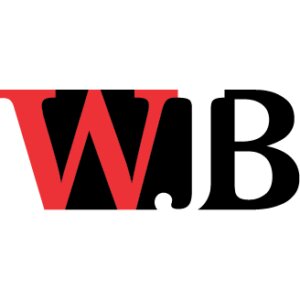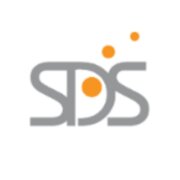Best Ethics and Professional Responsibility Lawyers in Secunda
Share your needs with us, get contacted by law firms.
Free. Takes 2 min.
List of the best lawyers in Secunda, South Africa
About Ethics and Professional Responsibility Law in Secunda, South Africa
Ethics and Professional Responsibility refers to the legal and moral standards that govern the conduct of professionals in various fields, such as law, healthcare, engineering, and accounting. In Secunda, South Africa, these standards are overseen by professional bodies and regulatory authorities to ensure that professionals act with honesty, integrity, and competence. Compliance with these rules protects both clients and the public, fostering trust in professional services. Legal issues can arise when professionals are accused of misconduct or breaches of their ethical duties.
Why You May Need a Lawyer
There are several common situations in Secunda where individuals and professionals might require legal advice relating to Ethics and Professional Responsibility:
- If a professional is accused of unethical or unprofessional conduct, such as fraud, misrepresentation, or negligence.
- When facing a disciplinary hearing before a regulatory body, such as the Legal Practice Council, Health Professions Council of South Africa (HPCSA), or the South African Institute of Chartered Accountants (SAICA).
- If you are a client who suspects that a professional has violated ethical duties or caused harm through their services.
- When interpreting or complying with codes of conduct and professional guidelines.
- If you need to report unethical behavior by a professional.
- To resolve disputes related to conflicts of interest or confidentiality breaches.
Local Laws Overview
South Africa, including Secunda, has various legislation and regulations addressing Ethics and Professional Responsibility:
- Legal Profession: The Legal Practice Act governs lawyers, requiring adherence to the Legal Practice Council’s Code of Conduct.
- Healthcare Professionals: The Health Professions Act and the regulations of the HPCSA set standards for ethical behavior and patient care.
- Accountants and Engineers: Professional bodies like SAICA and the Engineering Council of South Africa (ECSA) establish and enforce codes of ethics.
- Corruption and Fraud: Laws such as the Prevention and Combating of Corrupt Activities Act aim to deter unethical conduct in both public and private sectors.
- Disciplinary Procedures: Regulatory authorities follow formalized procedures to investigate and adjudicate alleged breaches.
In Secunda, professionals and clients must be mindful of local regulations and the procedures of relevant professional bodies. Legal assistance ensures that proceedings are fair and rights are protected.
Frequently Asked Questions
What does professional misconduct mean in South Africa?
Professional misconduct refers to behavior by a professional that violates the code of ethics or standards set by the profession’s regulatory body. This could include dishonesty, breach of confidentiality, neglecting responsibilities, or other unethical actions.
Who regulates ethical conduct for professionals in Secunda?
Relevant professional councils and bodies, such as the Legal Practice Council for lawyers or the HPCSA for healthcare professionals, regulate ethical conduct. These bodies set codes of conduct and handle complaints and disciplinary actions.
Can clients file complaints against professionals in Secunda?
Yes. Clients or members of the public can file complaints directly with the relevant professional council or regulator, which will investigate and, if necessary, take disciplinary action.
What are the possible consequences of unethical conduct?
Consequences may include formal warnings, fines, suspension, removal from the profession’s register, or, in severe cases, criminal charges, depending on the nature of the misconduct.
What role does the law play in professional responsibility?
Laws provide the framework within which professional codes of conduct are enforced. They ensure that professionals maintain high standards and that clients receive fair treatment and recourse.
How can a professional defend themselves against a disciplinary complaint?
A professional can present evidence, testimony, and arguments at a disciplinary hearing. Many choose to be represented by a lawyer specializing in ethics and professional responsibility for guidance and a strong defense.
What happens during a disciplinary hearing?
A panel reviews the complaint, evidence, and responses. Both parties may present their case. The panel then decides if misconduct occurred and what sanctions, if any, should be imposed.
Can disciplinary decisions be appealed?
Yes. If a professional believes the decision was unfair, they can appeal the outcome to higher bodies or seek review by a court, depending on the rules of the specific regulatory authority.
Is there a time limit to file complaints?
Most professional councils establish time limits for lodging complaints, which can vary. It is best to consult the relevant body or seek legal advice promptly if you have concerns.
How confidential are disciplinary proceedings?
Disciplinary proceedings are usually confidential to protect the privacy of all parties involved until a decision is made. Outcomes may be published if a professional is found guilty of misconduct.
Additional Resources
If you need more information or wish to lodge a complaint, the following resources and organizations may be useful in Secunda and South Africa:
- Legal Practice Council - For legal practitioners
- Health Professions Council of South Africa (HPCSA)
- South African Institute of Chartered Accountants (SAICA)
- Engineering Council of South Africa (ECSA)
- South African Human Rights Commission (for broader ethical concerns)
- Local law clinics and legal aid offices
- South African Police Service (for criminal violations)
- Office of the Public Protector (for government-related ethics complaints)
Next Steps
If you believe you require legal advice concerning Ethics and Professional Responsibility in Secunda:
- Gather all relevant documents and information related to your concern or case.
- Identify the appropriate regulatory body overseeing the relevant profession.
- If you are the subject of a complaint or wish to file one, act promptly to meet any deadlines.
- Contact a lawyer experienced in ethics and professional responsibility for an initial consultation. They can explain your rights, obligations, and the best course of action.
- Follow the guidance of your legal advisor and attend any required hearings or meetings.
- Consider mediation or alternative dispute resolution if appropriate, to resolve matters efficiently.
Professional ethics issues can be complex and stressful. Seeking prompt legal advice helps ensure your interests and reputation are properly protected.
Lawzana helps you find the best lawyers and law firms in Secunda through a curated and pre-screened list of qualified legal professionals. Our platform offers rankings and detailed profiles of attorneys and law firms, allowing you to compare based on practice areas, including Ethics and Professional Responsibility, experience, and client feedback.
Each profile includes a description of the firm's areas of practice, client reviews, team members and partners, year of establishment, spoken languages, office locations, contact information, social media presence, and any published articles or resources. Most firms on our platform speak English and are experienced in both local and international legal matters.
Get a quote from top-rated law firms in Secunda, South Africa — quickly, securely, and without unnecessary hassle.
Disclaimer:
The information provided on this page is for general informational purposes only and does not constitute legal advice. While we strive to ensure the accuracy and relevance of the content, legal information may change over time, and interpretations of the law can vary. You should always consult with a qualified legal professional for advice specific to your situation.
We disclaim all liability for actions taken or not taken based on the content of this page. If you believe any information is incorrect or outdated, please contact us, and we will review and update it where appropriate.









